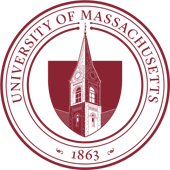We are particularly interested in how a protein folds in vivo. There are many challenges presented to a newly synthesized protein as it navigates its energy landscape to the native state in the cell, including the co-translational emergence of the protein from the ribosome and potential for conformational search before the chain is complete, the extremely high concentration of macromolecules and consequent crowding of the cellular milieu, the heterogeneous and limited volumes accessible to a folding chain, and the numerous molecular chaperones that interact with partially folded states and modulate their conformational exploration.
In addition to this effort to describe the folding environment of the cell, we are doing detailed mechanistic studies of major classes of molecular chaperones. Present work focuses on the Hsp70s, which are ubiquitous and play a wide array of roles in facilitating the folding, membrane translocation, assembly and disassembly of complexes, and degradation of proteins in nucleotide-regulate manner, and in partnership with a complex network of partner chaperones.
Lastly, we recognize that protein folding in the cell does not always succeed, with many pathological consequences associated with misfolding. Important among these is aggregation. We are using the systems we develop to observe folding in the cell to examine the origins and mechanisms of protein aggregation in vivo, with a goal of better understanding misfolding-based diseases such as the many neurodegenerative diseases (Alzheimer’s, Huntington’s, Parkinson’s).
Experience
-
–presentDistinguished Professor of Biochemistry and Molecular Biology, UMass Amherst
- Amherst, Massachusetts, U.S.
- Article Feed
- ORCID
- Joined


